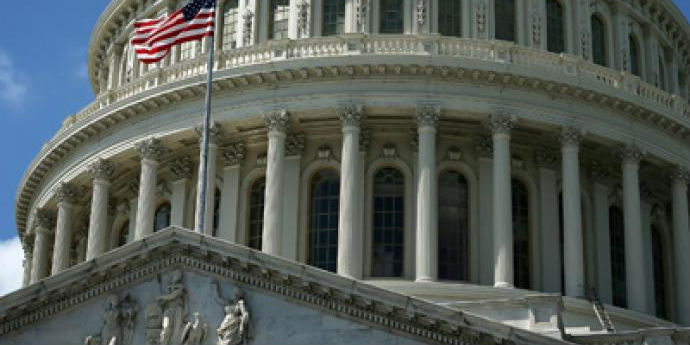Digital entrepreneurs, online consumers, and anyone who uses the Internet should beware of a tricky political maneuver some Washington politicians are planning for this year’s lame duck session. They want to hold a very popular ban on internet taxes hostage unless they can combine it with an unpopular, economically harmful internet sales tax (IST) bill. Americans deserve better than this type of dishonest maneuver from their elected officials, but the lame duck session will provide them the most political cover, and they know it.
Videos By Rare
In place since 1998, the Internet Tax Freedom Act (ITFA) is a moratorium on new discriminatory state and local taxes on internet services. Before 1998, ten states had imposed taxes on Internet usage, but under the moratorium, no additional state or local internet usage taxes are permitted. The moratorium has been reauthorized four times, most recently in 2007, but because it has not yet been made permanent, there is a constant threat of the ban expiring altogether. The House passed a permanent extension of ITFA by a unanimous voice vote this year, but the Senate only extended it conveniently to December 11, 2014 in the middle of the lame duck.
With the many economic, social, educational, and entrepreneurial advantages the Internet provides, it is no surprise that a ban on internet usage taxes is a popular policy. The United States is currently a global tech leader thanks largely to deregulation of online ventures, but an internet access tax would hamper the technology industry. Serious economists demonstrate that ending the moratorium would have serious negative consequences. It would discourage online innovation and the creation of online startup companies, and would run contrary to a longstanding policy goal of the United States government: namely, to increase broadband Internet adoption because of its economic and social benefits.
Yet, revenue hungry lawmakers with an insatiable appetite for new taxes are willing to make access to the Internet more difficult. Online entrepreneurs aren’t the only ones in jeopardy, though. Lower income families struggling in this economy would be hit the hardest by new Internet usage taxes. They have to make difficult decisions about how to use their discretionary spending, and may use the internet to search for employment or otherwise improve their financial situation.
An internet sales tax, on the other hand, would harm the economy, especially online entrepreneurs and consumers. The internet sales tax bill in question, the so-called the Marketplace Fairness Act (MFA), is anything but fair. While brick-and-mortar companies only have to collect taxes for the physical location they’re based in, small online businesses would have to live the nightmare of navigating the policies of some 10,000 jurisdictions and 46 state tax authorities where their customers live. A small online business in a state with no sales tax like New Hampshire, for example, could be audited by any of the 46 states that collect sales taxes.
Small online businesses do not have the financial resources to deal with the massive compliance burdens imposed on them by the Marketplace Fairness Act. Major retailers, many of which have a physical presence in a variety of states, can afford lawyers and accountants to help them comply with taxes and regulations, and have lobbied in favor of the internet sales tax to drive out competition from small businesses. While it’s an appealing policy to major retailers, only 35 percent of Americans support the idea of an internet sales tax.
Washington should enact policies to encourage online innovation and digital entrepreneurship. The internet tax moratorium should be made permanent, and the internet sales tax should become a thing of the past. Trying to hold the internet tax ban hostage with a terrible bill like the internet sales tax would be a huge disservice to all Americans.
And doing so during the lame duck would explain why cockroaches and potholes are more popular than Congress.
Katherine is the Communications Deputy for Heritage Action for America. Follow her on Twitter @KathMaryRosario

